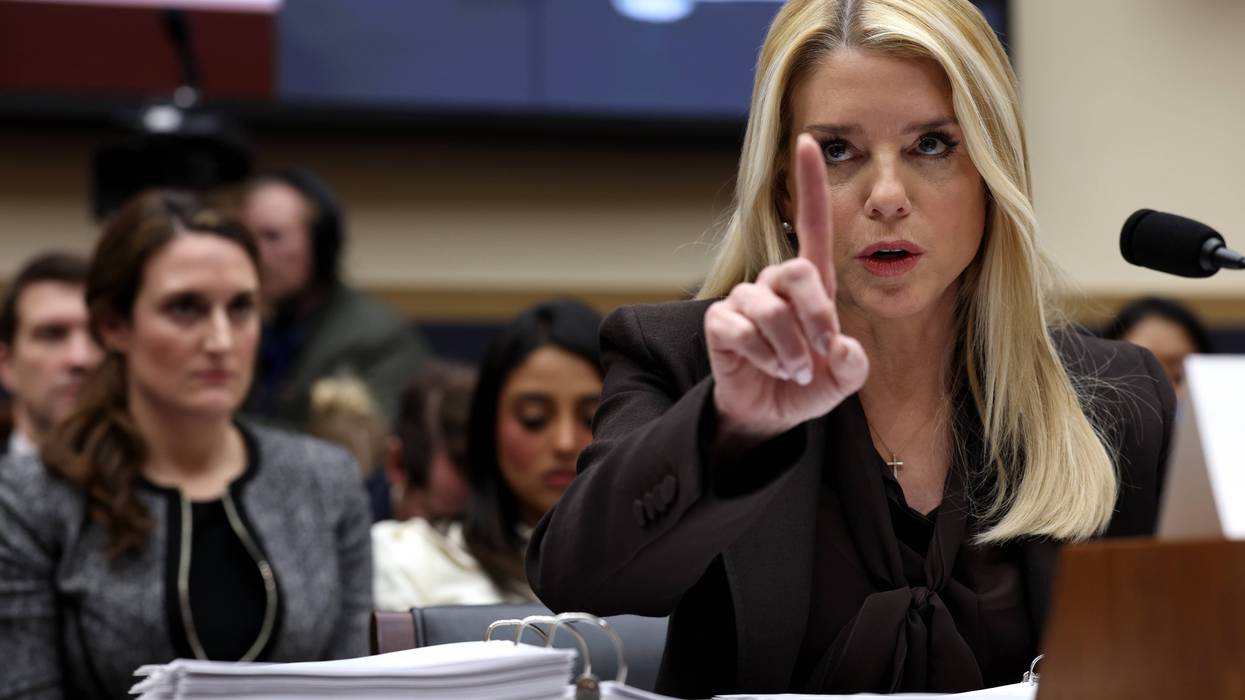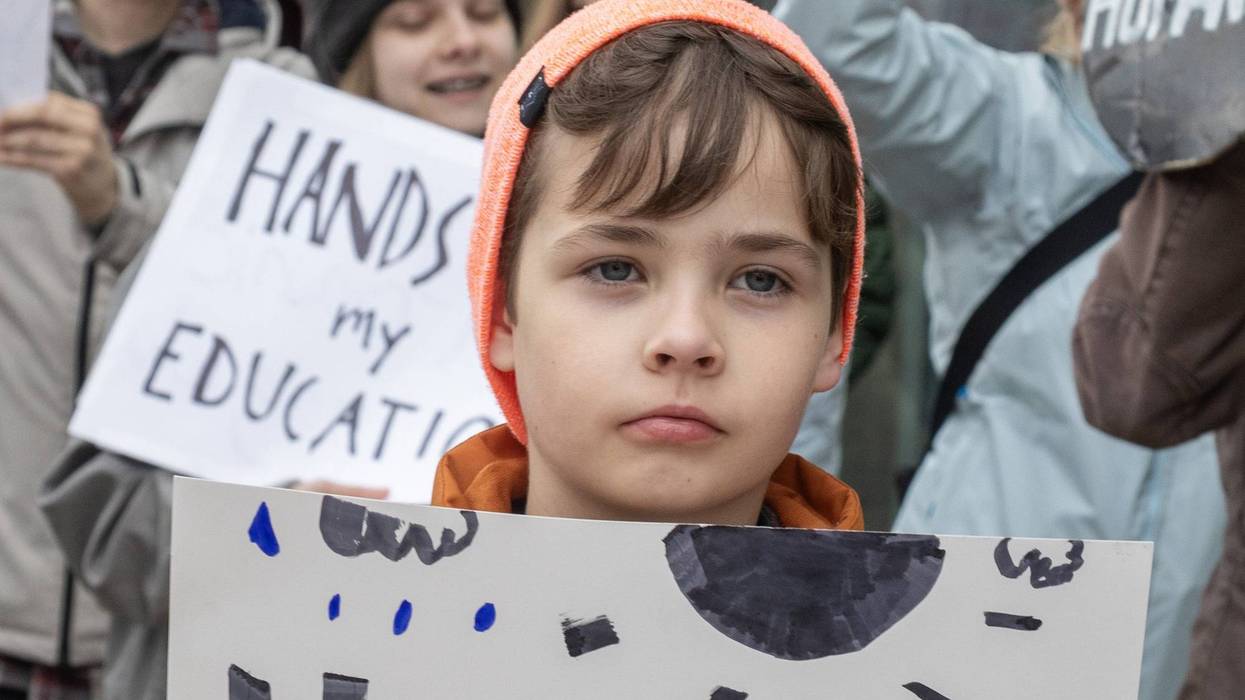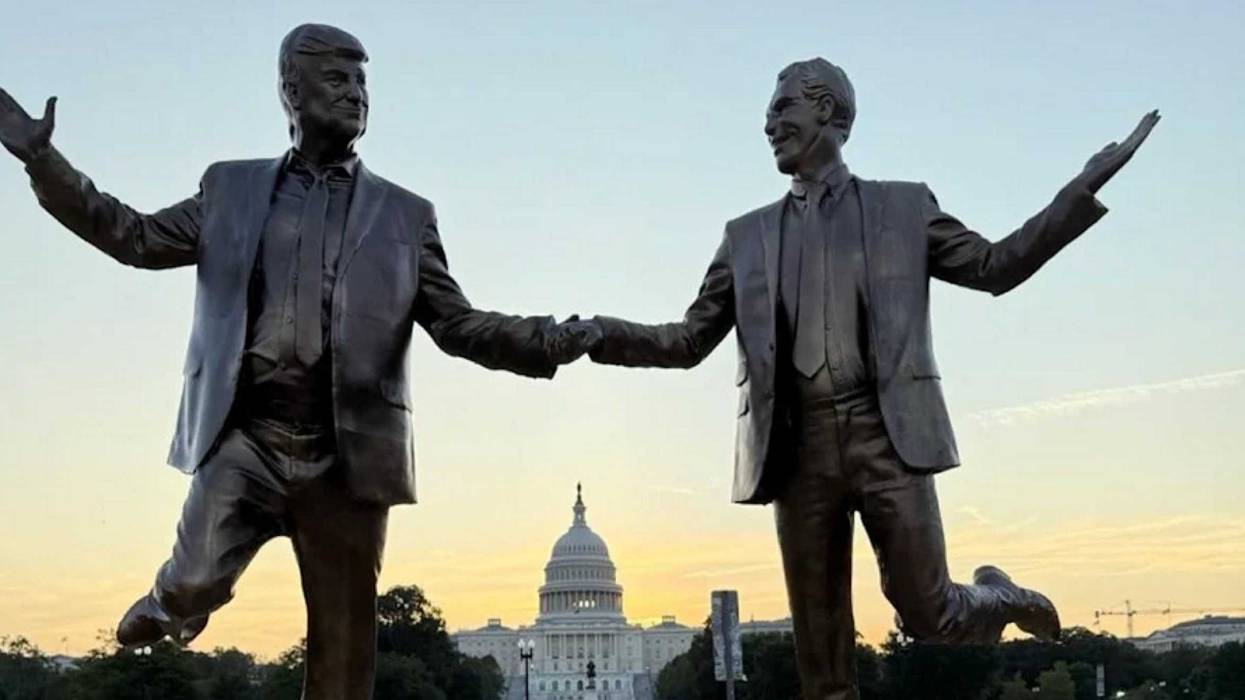DOJ Under Fire for Withholding Epstein Files Related to Alleged Trump Child Sex Assault
"Covering up direct evidence of a potential assault by the president of the United States is the most serious possible crime in this White House," said one Democratic congressman.
The top Democrat on the House Oversight Committee announced Tuesday that an investigation will be opened into the US Department of Justice's withholding of Epstein files related to an alleged sexual assault on a 13-year-old girl committed by President Donald Trump decades ago.
“For the last few weeks, Oversight Democrats have been investigating the FBI’s handling of allegations from 2019 of sexual assault on a minor made against President Donald Trump by a survivor," Oversight Committee Ranking Member Robert Garcia (D-Calif.) said in a statement.
“Yesterday, I reviewed unredacted evidence logs at the Department of Justice. Oversight Democrats can confirm that the DOJ appears to have illegally withheld FBI interviews with this survivor who accused President Trump of heinous crimes," he continued. "Oversight Democrats will open a parallel investigation into this."
"Under the Oversight Committee’s subpoena and the Epstein Files Transparency Act, these records must immediately be shared with Congress and the American public," Garcia added. "Covering up direct evidence of a potential assault by the president of the United States is the most serious possible crime in this White House cover-up."
Oversight Dems have access to a list of documents, including interviews detailing serious allegations against President Trump, that are missing from the DOJ’s so-called “unredacted” files.Where are the missing files? What do they say? This all points to yet another cover up.
[image or embed]
— Rep. Robert Garcia (@robertgarcia.house.gov) February 24, 2026 at 2:21 PM
The Trump administration is accused of continuously flouting the Epstein Files Transparency Act—which mandated that all materials related to convicted child sex criminal and longtime former Trump friend Jeffrey Epstein be released by December 19. But critically, the law gives Attorney General Pam Bondi wide discretion to redact large amounts of information that could harm "national security."
Files on Epstein—who died under mysterious circumstances in a New York City jail cell in 2019 while awaiting trial on federal sex trafficking charges—that have not been released to the public despite the transparency law "include what appears to be more than 50 pages of FBI interviews, and notes from conversations with a woman who accused Trump of sexual abuse decades ago when she was a minor," NPR reported Tuesday.
That minor was allegedly introduced to Trump around 1983, when she was 13 years old.
“[REDACTED] stated Epstein introduced her to Trump, who subsequently forced her head down to his exposed penis which she subsequently bit," a DOJ file on the alleged incident states. "In response, Trump punched her in the head and kicked her out."
The child is one of more than two dozen women who have accused Trump of raping, sexually assaulting, or sexually harassing them.
In 2023, a civil jury in New York City found Trump civilly liable for sexually abusing and defaming journalist E. Jean Carroll and awarded her $5 million. In a separate defamation trial, Trump was ordered to pay Carroll another $83.3 million.
Trump, who denies any wrongdoing, is challenging these civil awards. Trump also denies an allegation that he and Epstein "brutally raped" a 13-year-old girl identified by the pseudonym "Katie Johnson" at a 1994 party.
As NPR reported Tuesday:
Other files scrubbed from public view pertain to a separate woman who was a key witness for the prosecution in the criminal trial of Epstein's co-conspirator, Ghislaine Maxwell, who is serving a 20-year prison sentence for sex trafficking. Maxwell is seeking clemency from Trump. Some of those documents were briefly taken down and put back online last week, while others remain hidden, according to NPR's comparison of the initial dataset from January 30 with document metadata of those files currently on the Justice Department website.
Earlier this month, Rep. Jamie Raskin (D-Md.) said that the unreacted Epstein files, which he had viewed, contained "more than million" references to Trump.
Robert Glassman, an attorney representing a woman who testified against Maxwell, blasted the DOJ for its "ridiculous" handling of the Epstein files.
"The DOJ was ordered to release information to the public to be transparent about Epstein and Maxwell's criminal enterprise network," he told NPR. "Instead, they released the names of courageous victims who have fought hard for decades to remain anonymous and out of the limelight. Whether the disclosures were inadvertent or not—they had one job to do here and they didn't do it."
Responding to the NPR report, Rep. Ted Lieu (D-Calif.) said on X, "I guarantee if these files exonerated Trump, they would have been released," adding that Bondi "must resign, and she must be prosecuted."
Democratic National Committee Rapid Response Director Kendall Witmer released a statement Tuesday asserting that "Donald Trump continues to lie about his relationship with Jeffrey Epstein, while his administration works overtime to hide the truth about Epstein’s heinous crimes from the American people."
"Tonight at the State of the Union, Trump will be in the same room as survivors of Epstein’s crimes, whom he has denied transparency and justice," Witmer added. "He and his administration must be held accountable for protecting pedophiles.”
Democratic lawmakers including Garcia, Raskin, and Senate Minority Leader Chuck Schumer (D-NY) have invited Epstein survivors as guests to Tuesday night's speech by Trump.
Elisa Batista, campaign director at the advocacy group UltraViolet Action, said in a statement Tuesday that we are in solidarity with the courageous survivors showing up in defiance of Trump’s attempts to change the conversation at the State of the Union tonight."
Batista continued:
Their bravery represents the will of millions of Americans who are demanding accountability not just for all those who enabled Jeffrey Epstein, but also for public officials like Attorney General Pam Bondi who continue to protect those abusers and enablers by refusing to release all of the Epstein files.
When it comes to the Epstein class, the real state of the union remains unchanged: These powerful abusers and enablers believe they will be shielded by their wealth, networks, or influence. Now, like before, it’s been the fearless insistence of survivors that’s stood in the way of efforts by politicians like Trump and Bondi to sweep the full legacy of Epstein’s child sex trafficking network under the rug.
“No matter how much Trump and Bondi try to distract us from the fact that they broke the law to keep the public in the dark about the extent of Epstein’s child abuse, we, survivors and allies, will not allow them to forget their role in offering cover for Epstein and his enablers," Batista added.


